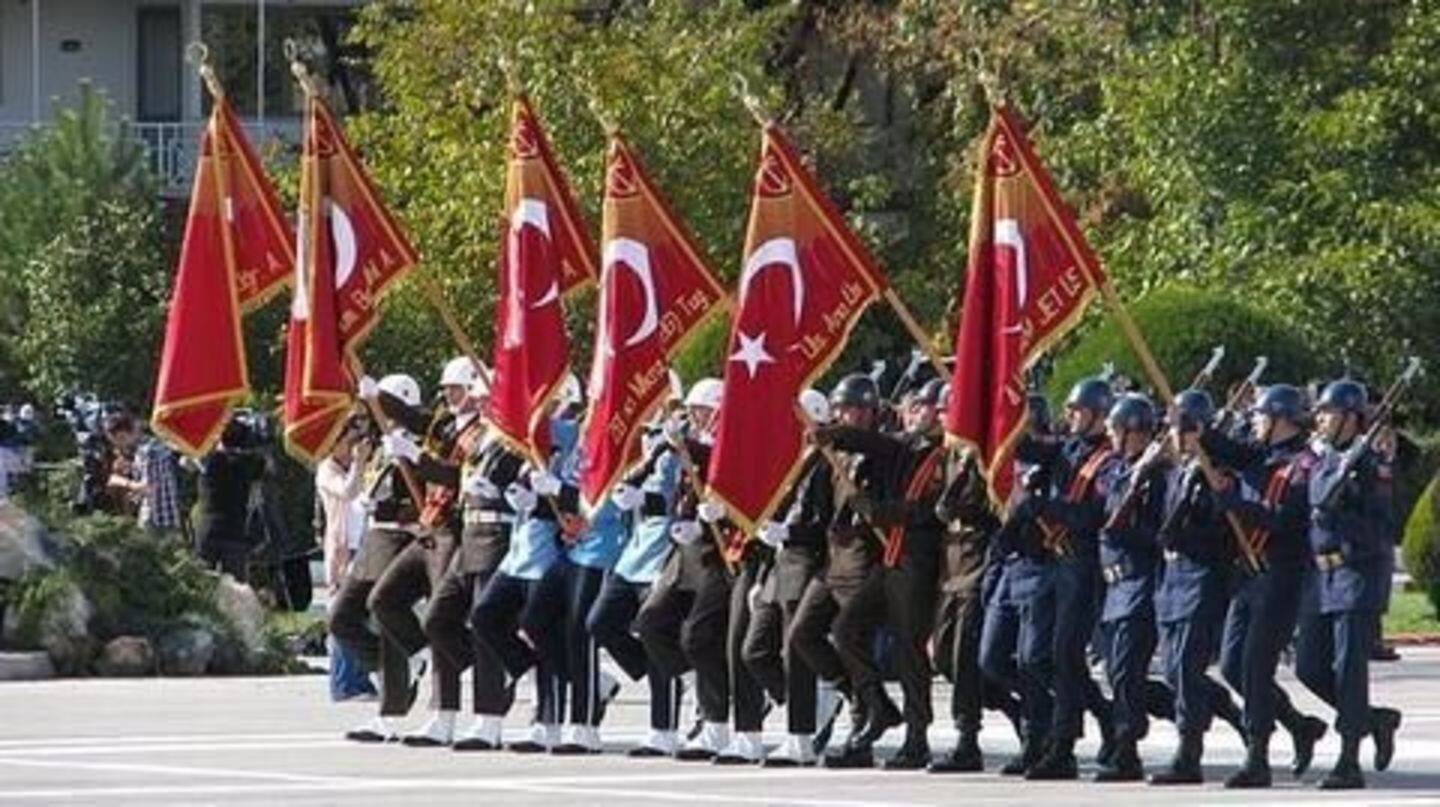
Turkey ends Euphrates Shield military operation in Syria
What's the story
Turkish PM Binali Yildirim said his country has "successfully" ended its seven-month military campaign in northern Syria. Turkey had launched operation Euphrates Shield with Syrian opposition fighters to drive ISIS militants away from its border and to stop advancing Kurdish fighters. Yildrim didn't rule out any fresh military operations nor did he say when Turkish troops would evacuate Syria.
29 Aug 2016
Turkey's Erdogan vows unrelenting pursuit of ISIS, Kurdish forces
Turkish president Recep Tayyip Erdogan vowed to fight both ISIS fighters and US-backed Syrian Kurdish forces with the same unrelenting determination. Turkey has launched a cross-border military offensive that has left dozens dead. At least 40 civilians have died in separate Turkish strikes, according to the UK-based Syrian Observatory for Human Rights. Turkey has dismissed reports of civilian deaths.
20 Oct 2016
Turkey kills nearly 200 Kurdish fighters in Syria
Turkish state media said that Turkish military airstrikes have killed up to 200 Kurdish YPG fighters in northern Syria. The death toll hasn't been independently verified. The US considers the YPG to be an important force in anti-ISIS operations. Turkey claims the group is an extension of the banned Kurdish fighters who have conducted several attacks targeting Turkish territories.
Anti-ISIS operations
Turkey captured important towns from ISIS
Operation Euphrates Shield was launched on 24 August with the deployment of Turkish troops, tanks and planes into Syria. The Turkish army and Turkish-backed Syrian rebels have since managed to capture several strategic towns and areas, including Jarablus and al-Bab. Turkish troops remain stationed along the captured regions in Syria and along the border.
Anti-Kurdish operations
Why Turkey launched operations against Kurdish rebels in Syria
Turkey aimed to stop the US-backed Kurdish YPG militia from crossing the Euphrates river westwards to expand their territory. Turkey is concerned that the YPG is the Syrian extension of the banned Kurdish PKK militant group which it holds responsible for attacks within its borders. Ankara fears that its own sizeable Kurdish population may get emboldened and try forging a self-ruled areas inside Turkey.